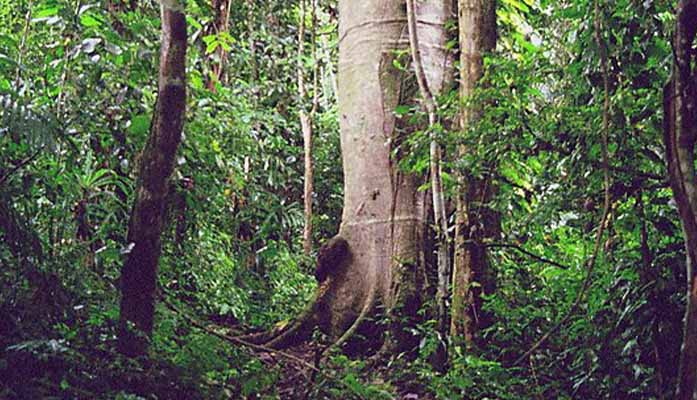
I grew up on the Arizona-Mexico border, where the only thing separating the two nations was a broken barbed wire fence. Living on Fort Huachuca, just a stone’s throw from the international line, I experienced a time of cultural harmony when families intermarried, ranchers gathered stray cattle across borders, and peace defined life along the borderlands. But the tranquility of my childhood has been replaced by a war zone—what I now call the “bloody border.” The drug cartels have turned our southern border into a battlefield, and the carnage doesn’t start at the Rio Grande.
For eight years, I’ve lived in Panama and Colombia, traveling extensively through the region. I’ve seen firsthand how the same cartels responsible for poisoning American communities with drugs and fueling human trafficking use a well-worn route stretching from South America to the United States. This smuggling highway begins in Venezuela, cuts through Colombia’s coastal roads, crosses the Darien Gap in Panama, and snakes north through Central America into Mexico before reaching American soil.
This is where America’s border crisis truly begins.
As a member of Congress, I fought against international drug cartels and opposed misguided immigration amnesty programs. I advocated for securing our border and stood against those who allowed it to descend into chaos. But fighting this crisis effectively requires a new strategy—one that starts far south of Arizona.
The U.S.-Mexico border is only the final checkpoint in a long chain of criminal activity. To truly stop the flow of drugs, criminals, and trafficked humans, we must extend our border enforcement into Central and South America. This means leveraging our embassies in Mexico, Central America, Panama, Colombia, and even along the Venezuela-Colombia border to act as the first line of defense against the cartels.
America’s ambassadors to these regions must be border enforcers and cartel fighters first—not Foggy Bottom bureaucrats sipping martinis and preaching pastel platitudes about “regional cooperation.” We need strong, decisive leaders in our embassies who understand the cartels’ methods and are willing to use our leverage with these governments to stop the crisis.
As a congressman, I initiated the U.S.-Panama and U.S.-Colombia Free Trade Agreements, laying the groundwork for economic cooperation. Today, we must use these agreements as a reminder to Panama and Colombia that if you do not cooperate, allow us to fight the cartels. You will not have preferential access to American markets. If Panama and Colombia want to maintain their preferential trade status with the United States, they must commit to becoming active partners in border enforcement or get out of our way.
The Darien Gap in Panama—a dense, lawless jungle corridor—is a critical bottleneck where migrants and cartel operatives gather before heading north. American border enforcement must begin here, long before the caravans reach Mexico. Panama’s government should work with U.S. forces to establish joint operations to disrupt these staging grounds.
Colombia, too, has a key role to play. Venezuelan criminals flood into Colombia and use its coastal roads to reach Panama. The U.S. must be allowed to establish enforcement operations along the Colombia-Venezuela border to address this crisis and push Colombia to clamp down on these routes.
This isn’t just about drugs, though that is a grave concern. It’s about human trafficking, too—the exploitation of vulnerable individuals especially children for profit. These cartels are not just smuggling substances; they’re smuggling souls. The same routes that carried cocaine into the United States now carry women and children sold into slavery.
I have driven these roads and interviewed hundreds of police and government officials. I’ve seen the cartel’s vulnerable choke points, the staging camps, and the sweltering mosquito infested regions that demand action. America’s border czar, Tom Homan, needs ambassadors who will be proactive partners in this fight—not State Department officials more comfortable in Paris than in the jungles of Panama.
Every U.S. ambassador from Mexico to Colombia must see themselves as an extension of American border enforcement. This means prioritizing joint operations with host nations, deploying American and local forces to disrupt cartel routes, and making drugs, criminals, and human trafficking the embassy’s top priority.
The border crisis doesn’t end at the Rio Grande—it starts thousands of miles south. If we’re serious about securing our homeland, we must start by securing the Darien Gap and the routes that feed into it. America’s true border begins in the jungles of Panama, and along the coastal highways of Colombia and Venezuela.
Let’s project American power into these lawless zones to protect America and Nation’s sovereignty.
Rick Renzi is a former Congressman, pro-life advocate, and patriot who was politically targeted by Jack Smith for nearly a decade before being pardoned by President Trump. An original co-sponsor of the landmark Partial-Birth Abortion Ban Act of 2003, Renzi has a track record of advancing life-affirming initiatives. He authored legislation that significantly increased benefits for military personnel, including tripling the death benefit for those killed in action, earning national recognition from President Bush. While serving on the House Intelligence Committee, Renzi fought to safeguard citizens’ rights by restricting NSA surveillance overreach. A proud son of a two-star general, Renzi earned his Juris Doctorate with a focus on Law and Public Policy from Catholic University’s Columbus School of Law.

